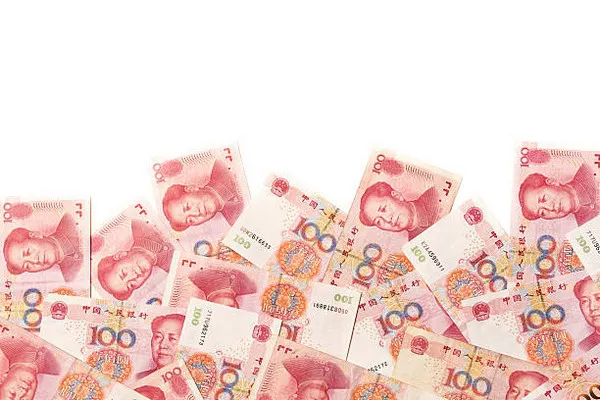In the realm of international finance, the strength of currencies holds significant importance for traders, investors, and policymakers alike. Among the currencies frequently scrutinized are the Chinese Yuan (CNY) and the Japanese Yen (JPY), two of Asia’s economic powerhouses. Analyzing their strength requires delving into a multitude of factors ranging from economic indicators to government policies and global market sentiment. This article provides a comprehensive examination of the dynamics influencing the relative strength of CNY and JPY.
Current Exchange Rates
As of the latest data available, the exchange rate between CNY and JPY stands at [insert current exchange rate]. However, exchange rates are subject to fluctuations influenced by various economic and geopolitical factors.
Economic Indicators
Economic indicators play a crucial role in determining the strength of a currency. Key indicators to consider include GDP growth, trade balances, inflation rates, and interest rates.
China has exhibited robust GDP growth over the past decade, albeit with some fluctuations. Its expanding economy, driven by manufacturing, exports, and domestic consumption, has contributed to the appreciation of the Yuan. On the other hand, Japan has faced challenges with deflationary pressures and sluggish economic growth. However, its trade surplus and stable inflation rates have bolstered the Yen’s strength.
Historical Performance
Analyzing the historical performance of CNY and JPY provides valuable insights into their trends and fluctuations. Over the past decade, the Yuan has gradually appreciated against the Yen and other major currencies, reflecting China’s economic ascension. Conversely, the Yen has experienced periods of volatility, influenced by domestic economic policies and global market dynamics.
Government Policies
Government policies in China and Japan exert significant influence on their respective currencies. China’s central bank, the People’s Bank of China (PBOC), implements measures to manage the value of the Yuan, including exchange rate interventions and capital controls. Japan’s monetary policy, led by the Bank of Japan (BOJ), aims to stimulate economic growth and maintain price stability through measures such as quantitative easing and interest rate adjustments.
Market Sentiment
Market sentiment plays a pivotal role in determining currency strength. Factors such as geopolitical tensions, economic uncertainty, and investor confidence impact the perception of CNY and JPY in the global market. Currently, sentiment towards the Yuan is influenced by China’s economic resilience and its efforts to internationalize the currency. In contrast, the Yen’s strength is partly driven by its safe-haven appeal during times of global uncertainty.
Investment Flows
Investment flows into China and Japan significantly affect the strength of their respective currencies. Foreign direct investment (FDI), portfolio investments, and capital inflows/outflows impact supply and demand dynamics in the foreign exchange market. China’s attractiveness as an investment destination, coupled with its Belt and Road Initiative, has contributed to the appreciation of the Yuan. Japan, despite its aging population and economic challenges, remains a major destination for foreign investments, supporting the stability of the Yen.
Global Economic Context
Placing CNY and JPY within the context of global economic trends and events is crucial for understanding their strength. Developments such as trade tensions, monetary policy decisions by major central banks, and geopolitical conflicts have far-reaching implications for currency markets. As key players in the global economy, China and Japan are affected by both regional and global economic dynamics.
Forecasts
Expert forecasts provide valuable insights into the potential future performance of CNY and JPY. While predictions are inherently uncertain, factors such as economic growth projections, policy changes, and geopolitical developments are taken into account. Forecasting the strength of CNY and JPY requires a nuanced understanding of domestic and international factors influencing their respective economies.
Implications for Traders and Investors
The strength of CNY and JPY carries significant implications for traders and investors. Currency fluctuations present opportunities for profit or loss in foreign exchange markets. Investors may adjust their portfolios based on expectations of currency movements, considering factors such as risk appetite, diversification, and hedging strategies.
FAQs
Why is the Yuan stronger than the Yen?
The Yuan’s strength is influenced by China’s robust economic growth, trade surplus, and efforts to internationalize the currency.
What factors contribute to the Yen’s strength?
Factors such as Japan’s trade surplus, stable inflation rates, and safe-haven appeal during times of uncertainty bolster the Yen’s strength.
How do government policies affect currency strength?
Government policies, including monetary and fiscal measures, influence currency value through their impact on economic fundamentals and market sentiment.
See Also What Is A Good Salary For A Single Person In China?
In conclusion, the relative strength of CNY and JPY is influenced by a complex interplay of economic indicators, government policies, market sentiment, and global economic trends. Understanding these dynamics is essential for traders, investors, and policymakers navigating the intricacies of international finance.


